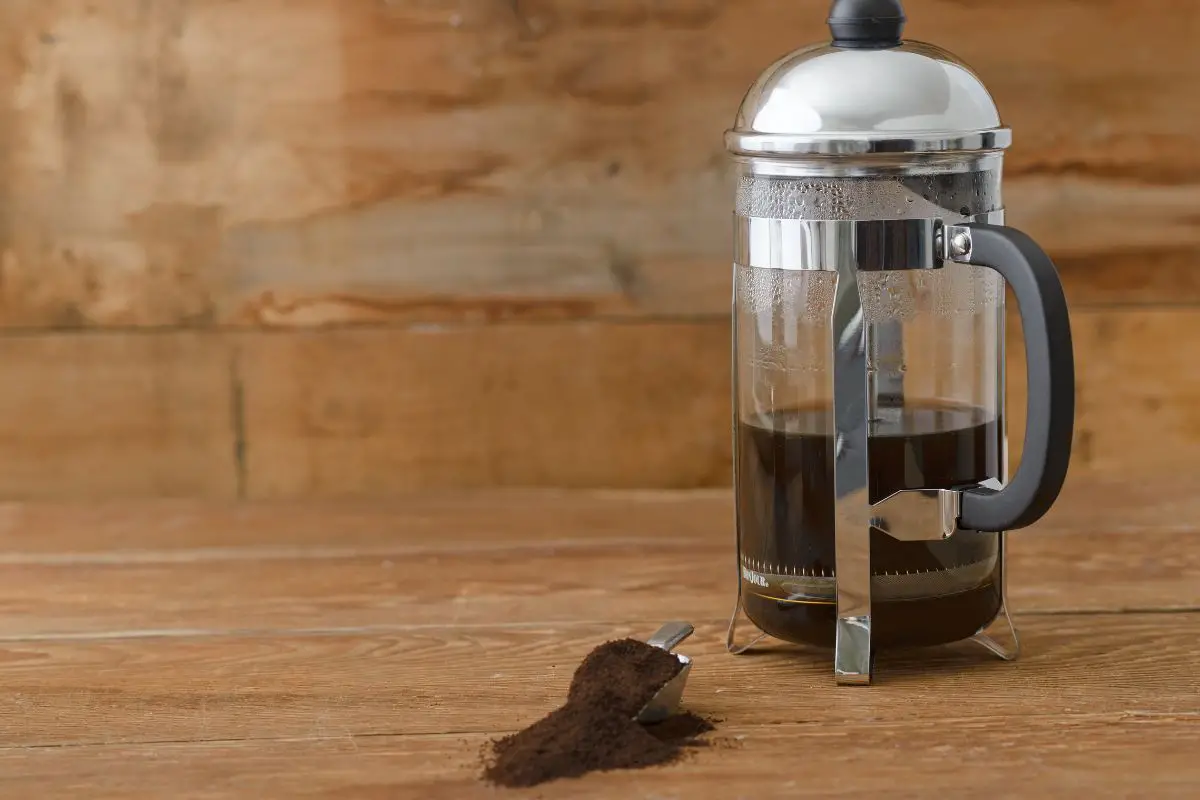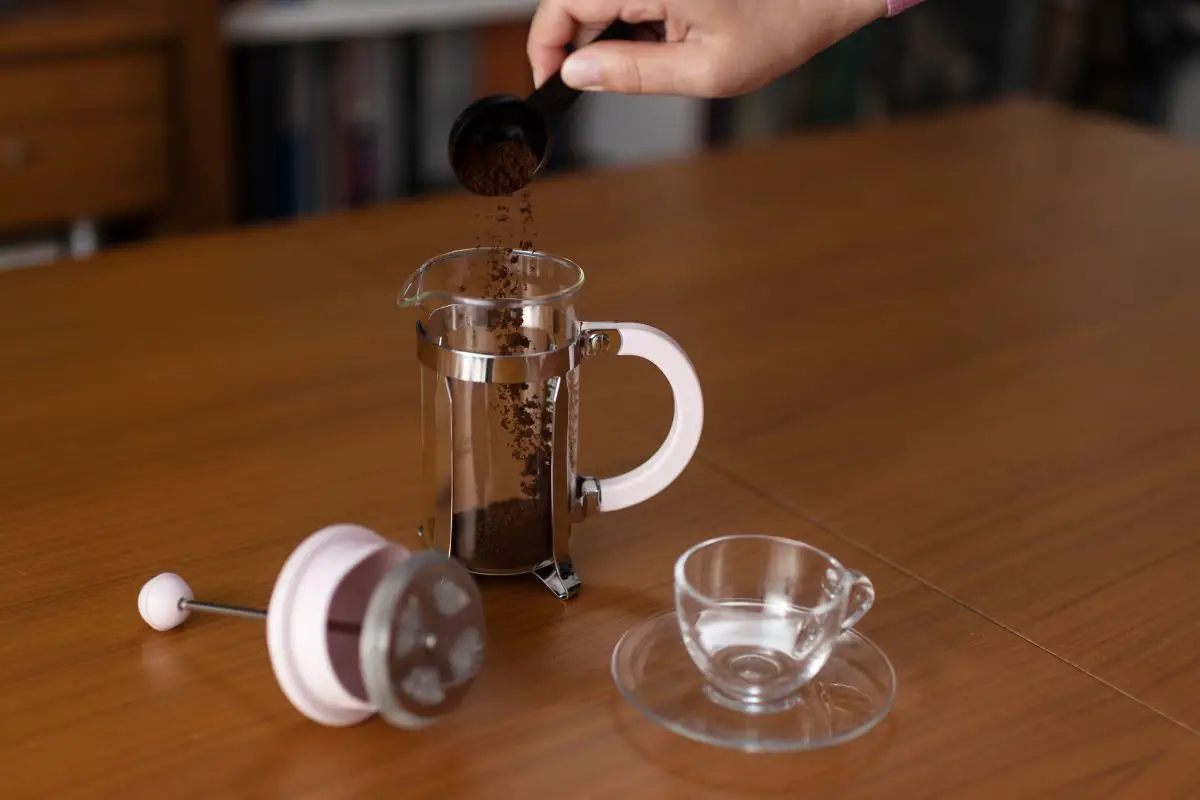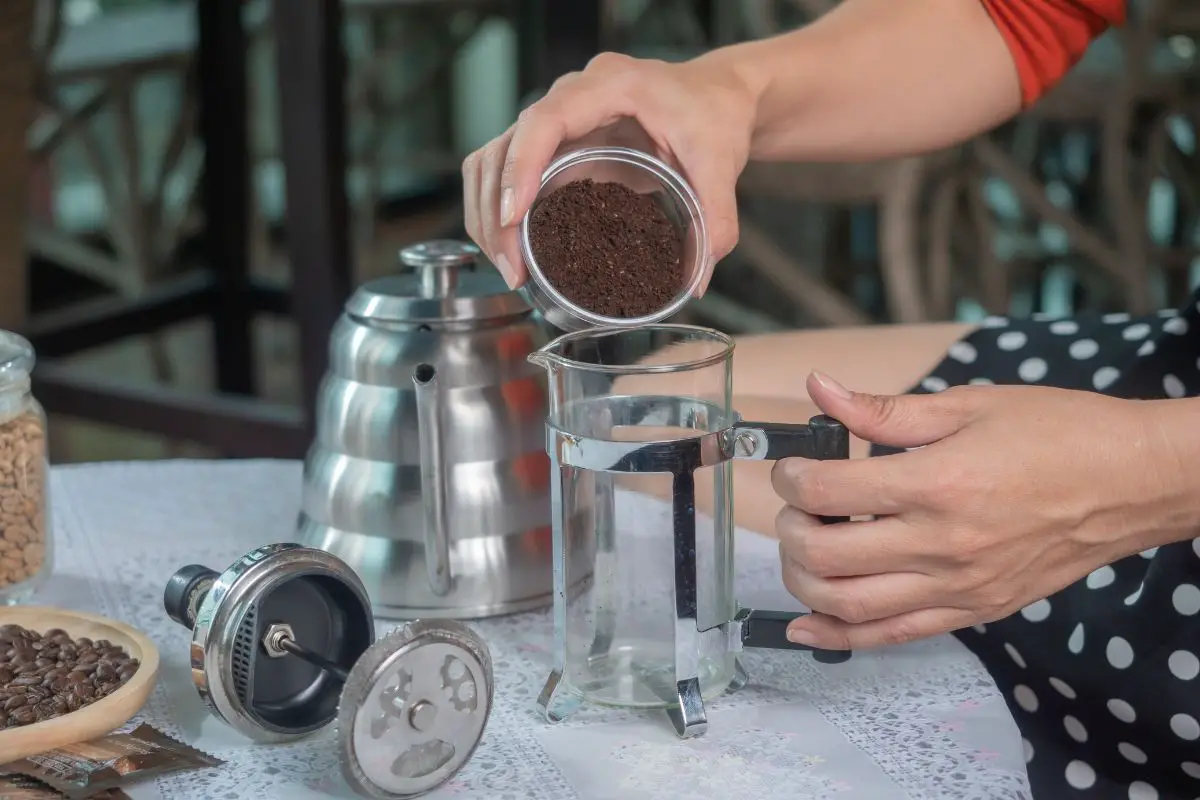In the realm of coffee brewing, the French press method stands as a popular choice for its simplicity and full-bodied flavor. However, achieving that perfect cup of French press coffee requires precision in various aspects, including the grind size of the coffee grounds.

Pre ground coffee for French press, conveniently available in stores, caters to those who seek a safe and hassle-free brewing experience.
The importance of grind size cannot be overstated when it comes to French press brewing. It directly affects the extraction process, impacting the taste, aroma, and overall quality of the coffee. This article delves into the world of pre ground coffee for French press, exploring different brands and varieties, discussing the significance of freshness and packaging, and providing insights into storage and shelf life.
Furthermore, this article offers valuable brewing techniques specifically tailored for French press coffee, ensuring optimal results with every brew. Additionally, readers will find useful tips for enhancing the flavor profile of their French press coffee, taking their brewing skills to new heights.
So, join us as we embark on a journey to unravel the secrets behind pre ground coffee for French press and elevate your coffee experience to new levels of satisfaction.
Key Takeaways
- Grind size of coffee grounds is important for achieving a perfect cup of French press coffee.
- Coarse grind is typically recommended for French press brewing to avoid over-extraction and bitterness.
- Different brands and varieties of pre-ground coffee offer distinct characteristics that impact taste and experience.
- Proper storage in an airtight container and temperature control are essential for maintaining the quality of pre-ground coffee.
Understanding the Importance of Grind Size
The significance of grind size becomes evident when considering its impact on the extraction process and the overall flavor profile of the coffee brewed using a French press.
Grind size refers to the particle size of the coffee beans after they have been ground. In the case of French press, a coarse grind is typically recommended. This is because the coarse grind allows for a slower extraction process, which helps to extract the desired flavors from the coffee beans without over-extracting the bitterness.
When the grind size is too fine, finer particles can slip through the mesh filter of the French press, resulting in a muddy and over-extracted brew. On the other hand, if the grind size is too coarse, larger particles may not be fully extracted, leading to a weak and underwhelming cup of coffee.
To ensure the best flavor and extraction, it is important to experiment with different grind sizes and find the one that suits your taste preferences. Exploring different brands and varieties of pre-ground coffee for French press can also provide opportunities to discover new flavor profiles and make the brewing process more enjoyable.
By carefully considering the grind size and experimenting with different options, you can elevate your French press coffee experience and savor the rich and nuanced flavors that this brewing method has to offer.
Exploring Different Brands and Varieties
When exploring various brands and varieties, it is essential to consider the wide range of options available in order to uncover the hidden gems among the vast array of choices.
Different brands offer distinct characteristics that can greatly impact the taste and overall experience of coffee brewed in a French press. Some popular brands known for their pre-ground coffee for French press include Starbucks, Peet’s Coffee, and Lavazza. These brands often offer a variety of blends, such as medium roast, dark roast, or specialty blends, allowing coffee enthusiasts to find their preferred flavor profile.
Additionally, there are specialty coffee brands that focus on sourcing high-quality beans from specific regions around the world. These brands emphasize the unique characteristics of different coffee-growing regions, such as the fruity and vibrant flavors of Ethiopian beans or the rich and chocolatey notes of beans from Central America. Exploring these specialty brands can be an exciting journey for those seeking to discover new and distinctive flavors.
It is important to consider the preferences and tastes of individual consumers when selecting a brand or variety. While some may prefer a bold and strong coffee, others may lean towards a smoother and more balanced cup. Therefore, it is advisable to read reviews, seek recommendations from fellow coffee lovers, or even try sample packs to find the perfect match.
In the subsequent section about freshness and packaging, we will delve into the importance of these factors in maintaining the quality of pre-ground coffee for French press brewing.
Freshness and Packaging

Exploring the concept of freshness and the quality of packaging is vital in ensuring the optimal preservation of the flavor and aroma of coffee beans destined for brewing in a French press. Freshness is a key factor in determining the quality of coffee as it directly affects its taste and aroma.
When coffee beans are roasted, they release carbon dioxide gas, which can degrade the flavor and aroma over time. Therefore, it is important to choose pre ground coffee that is packaged immediately after roasting to ensure maximum freshness.
The packaging of pre ground coffee for French press should be airtight and made of materials that can effectively prevent oxygen, moisture, and light from reaching the beans. Oxygen exposure can cause oxidation and spoilage of the coffee, while moisture can lead to the growth of mold and mildew. Light, especially ultraviolet light, can also degrade the coffee by breaking down its organic compounds.
To ensure the longevity of the coffee’s freshness, it is recommended to store the pre ground coffee in a cool, dark place away from heat sources and sunlight. Additionally, it is important to check the expiration date on the packaging and consume the coffee before it becomes stale.
Choosing pre ground coffee with a focus on freshness and quality packaging is crucial for preserving the flavor and aroma of coffee destined for French press brewing. Proper storage and monitoring of the coffee’s shelf life will further enhance the overall coffee experience.
Storage and Shelf Life
Storage and shelf life play a crucial role in maintaining the optimal quality and freshness of coffee beans for brewing in a French press. To ensure the best possible cup of coffee, it is important to consider the following factors:
- Proper storage: Coffee beans should be stored in an airtight container to protect them from exposure to air, moisture, and light. This helps to preserve the flavor and aroma of the beans. Additionally, storing coffee beans away from strong odors can prevent them from absorbing unwanted flavors.
- Temperature control: Coffee beans should be stored in a cool, dry place, away from direct sunlight and heat sources. Heat can accelerate the degradation process and compromise the quality of the beans. It is advisable to avoid storing coffee beans in the refrigerator as they can absorb moisture and odors.
- Shelf life: It is recommended to use coffee beans within two to four weeks of the roast date for the best flavor. After this period, the beans may start to lose their freshness and develop a stale taste. To ensure the highest quality, it is advisable to purchase coffee beans in smaller quantities and consume them within a reasonable timeframe.
By following these storage guidelines, coffee enthusiasts can enjoy a consistently fresh and flavorful cup of coffee brewed in a French press.
Transitioning into the subsequent section about brewing techniques for French press, it is essential to understand the impact of proper storage on the brewing process.
Brewing Techniques for French Press
This discussion will provide a step-by-step guide for brewing French press coffee, including adjusting the brewing time and water-to-coffee ratio for pre-ground coffee.
First, we will explore the precise steps involved in preparing a French press, from heating the water to pouring it over the coffee grounds.
Next, we will discuss how to adjust the brewing time to achieve the desired strength and flavor profile.
Finally, we will delve into the importance of finding the right water-to-coffee ratio to ensure a balanced and flavorful cup of coffee.
Step-by-step guide for brewing French press coffee
To begin the step-by-step guide for brewing French press coffee, envision the French press as a master craftsman, meticulously extracting the rich flavors and aromas from the pre ground coffee.
Start by measuring the desired amount of pre ground coffee, typically using a ratio of one tablespoon of coffee for every six ounces of water.
Coarsely grind the coffee, ensuring that the particles are larger than those used for drip brewing.
Boil the water and let it cool for about 30 seconds before pouring it over the coffee grounds.
Stir the mixture gently and let it steep for four minutes.
Finally, slowly press the plunger down to separate the brewed coffee from the grounds.
This careful process results in a full-bodied and flavorful cup of French press coffee.
Transitioning into the subsequent section about adjusting brewing time and water-to-coffee ratio for pre-ground coffee, it is important to understand the impact these variables have on the final taste and strength of the brew.
Adjusting brewing time and water-to-coffee ratio for pre-ground coffee
Adjusting the brewing time and water-to-coffee ratio can significantly influence the flavor and strength of the brew, allowing coffee enthusiasts to tailor their French press experience to their personal preferences. When using pre-ground coffee for French press, it is important to find the right balance between these two factors.
A longer brewing time, typically around four minutes, can extract more flavor from the grounds and result in a stronger brew. Conversely, a shorter brewing time can produce a milder cup of coffee.
The water-to-coffee ratio also plays a crucial role. Increasing the ratio by adding more coffee grounds will intensify the flavor, while reducing it will yield a weaker taste.
Finding the perfect combination of brewing time and water-to-coffee ratio is key to achieving the desired strength and flavor.
In the next section, we will explore tips for enhancing the flavor of French press coffee.
Tips for Enhancing Flavor

Enhancing the flavor of pre-ground coffee for French press can be achieved by incorporating a simple yet effective technique that adds a burst of delightful notes to each sip. By following these tips, coffee enthusiasts can elevate their brewing experience and enjoy a more satisfying cup.
Firstly, selecting high-quality pre-ground coffee is essential. Look for brands that prioritize freshness and provide detailed information about the origin and roast level of the coffee. This ensures a flavorful and aromatic brew.
Next, consider experimenting with the water-to-coffee ratio. While the general guideline is to use a 1:15 ratio (1 part coffee to 15 parts water), adjusting it slightly can enhance the taste. Increasing the amount of coffee grounds results in a stronger and more robust flavor, while decreasing it produces a milder brew.
Furthermore, paying attention to the water temperature is crucial. It is recommended to use water that is heated to around 200°F (93°C) for optimal extraction. Water that is too hot can result in a bitter taste, while water that is too cold may not extract the full range of flavors.
Lastly, be mindful of the brewing time. Allowing the coffee to steep for about four minutes before plunging the French press ensures maximum flavor extraction without over-extraction.
By following these tips, coffee lovers can enhance the flavor of their pre-ground coffee for French press brewing and enjoy a delightful and satisfying cup of coffee.
Frequently Asked Questions
Can I use pre ground coffee for a French press?
Yes, pre ground coffee can be used in a French press. However, it is recommended to use freshly ground coffee for better flavor and aroma. Pre ground coffee may result in a slightly weaker brew.
Are all pre ground coffees suitable for French press brewing?
Not all pre ground coffees are suitable for French press brewing. A study found that only 25% of pre ground coffees had the optimal grind size for this method, highlighting the importance of choosing the right coffee for a quality brew.
How long can I store pre ground coffee before it goes bad?
Pre ground coffee can be stored for up to 1-2 weeks before it starts to lose its flavor and freshness. To ensure optimal taste, it is recommended to store it in an airtight container in a cool, dark place away from moisture and heat sources.
Can I enhance the flavor of pre ground coffee for French press?
Enhancing the flavor of pre ground coffee for french press is possible through various methods. Experiment with different brewing techniques, water temperature, and coffee-to-water ratio to achieve the desired taste.
Are there any specific brewing techniques I should follow when using pre ground coffee for French press?
To enhance the flavor of pre ground coffee for French press, specific brewing techniques should be followed. These include using the correct water temperature, steeping time, and ratio of coffee to water. Adhering to these guidelines can result in a delicious and satisfying cup of coffee.
Conclusion
In conclusion, selecting the right pre-ground coffee for French press brewing is crucial for achieving a flavorful and aromatic cup of coffee.
The grind size, brand, freshness, packaging, storage, and brewing techniques all play a significant role in the final result.
Remember the adage ‘Quality over quantity’ when choosing your coffee, as investing in a high-quality pre-ground coffee will undoubtedly enhance your coffee experience.
By following the tips mentioned in this article, you can unlock the full potential of your French press and enjoy a truly exceptional cup of coffee.
Related articles: